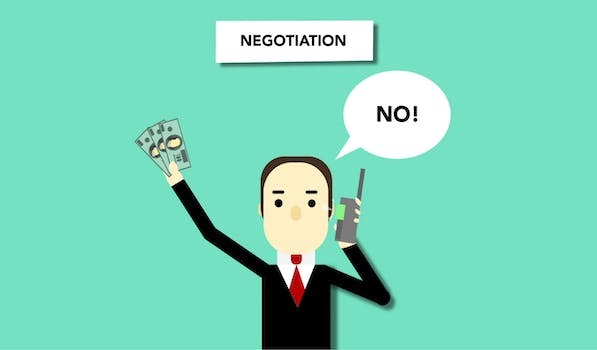How To Cut Your Budget And Save Money
“Trim your expenses, grow your savings.”
Introduction
Introduction: Cutting your budget and saving money is an essential step towards achieving financial stability. It requires discipline, planning, and a willingness to make sacrifices. In this article, we will discuss some practical tips on how to cut your budget and save money. By following these tips, you can reduce your expenses, increase your savings, and achieve your financial goals.
10 Simple Ways to Reduce Your Monthly Expenses
Are you tired of living paycheck to paycheck? Do you want to save more money but don’t know where to start? Cutting your budget can seem overwhelming, but it doesn’t have to be. With a few simple changes, you can reduce your monthly expenses and start saving money.
1. Create a budget
The first step to cutting your budget is to create one. Write down all of your monthly expenses, including rent/mortgage, utilities, groceries, and entertainment. Then, compare your expenses to your income. If you’re spending more than you’re making, it’s time to make some changes.
2. Cut back on eating out
Eating out can be expensive, especially if you do it frequently. Instead of going out to eat, try cooking at home. Not only is it cheaper, but it’s also healthier.
3. Cancel subscriptions
Do you have subscriptions to magazines, streaming services, or other monthly services? Cancel them. You can always resubscribe later if you miss them.
4. Use coupons
Coupons can save you a lot of money, especially on groceries. Look for coupons online or in your local newspaper.
5. Shop sales
When you do need to buy something, look for sales. Many stores have sales throughout the year, so you can save money by waiting for the right time to buy.
6. Use public transportation
If you live in a city with public transportation, use it. It’s cheaper than owning a car and can save you a lot of money on gas and maintenance.
7. Cut back on utilities
Utilities can be a big expense, but there are ways to cut back. Turn off lights when you’re not in the room, unplug electronics when you’re not using them, and lower your thermostat a few degrees in the winter.
8. Buy generic
When you’re shopping for groceries, buy generic brands instead of name brands. They’re often just as good and can save you a lot of money.
9. DIY
Instead of paying someone to do something for you, try doing it yourself. Whether it’s fixing a leaky faucet or painting a room, DIY can save you a lot of money.
10. Use cash
Finally, use cash instead of credit cards. It’s easy to overspend when you’re using a credit card, but when you’re using cash, you can only spend what you have.
Cutting your budget doesn’t have to be difficult. With a few simple changes, you can reduce your monthly expenses and start saving money. Remember to create a budget, cut back on eating out, cancel subscriptions, use coupons, shop sales, use public transportation, cut back on utilities, buy generic, DIY, and use cash. By following these tips, you’ll be on your way to a more financially stable future.
The Ultimate Guide to Meal Planning on a Budget

Are you tired of living paycheck to paycheck? Do you want to save money but don’t know where to start? One of the easiest ways to cut your budget is by meal planning on a budget. Not only will it save you money, but it will also save you time and reduce food waste. Here’s the ultimate guide to meal planning on a budget.
1. Plan your meals in advance
The first step to meal planning on a budget is to plan your meals in advance. Take some time each week to plan out your meals for the upcoming week. This will help you avoid last-minute trips to the grocery store and impulse purchases. You can also take advantage of sales and coupons by planning your meals around them.
2. Make a grocery list
Once you have your meals planned out, make a grocery list. Stick to your list and avoid buying anything that’s not on it. This will help you avoid impulse purchases and save money. You can also use apps like Ibotta and Checkout 51 to earn cashback on your grocery purchases.
3. Shop at discount stores
Another way to save money on groceries is to shop at discount stores. Stores like Aldi and Lidl offer high-quality products at lower prices than traditional grocery stores. You can also buy in bulk at stores like Costco and Sam’s Club to save money on non-perishable items.
4. Cook in bulk
Cooking in bulk is a great way to save time and money. You can cook a large batch of a meal and freeze the leftovers for later. This will help you avoid eating out or ordering takeout when you don’t feel like cooking. You can also use leftovers to make new meals, like turning leftover chicken into a chicken salad.
5. Use cheaper ingredients
Using cheaper ingredients is another way to save money on meals. Instead of buying expensive cuts of meat, opt for cheaper cuts like chicken thighs or ground beef. You can also use canned or frozen vegetables instead of fresh ones. They’re often cheaper and last longer.
6. Meal prep
Meal prepping is a great way to save time and money. You can prepare your meals in advance and have them ready to go throughout the week. This will help you avoid eating out or ordering takeout when you don’t feel like cooking. You can also use meal prep containers to portion out your meals and avoid overeating.
7. Use leftovers
Using leftovers is a great way to save money and reduce food waste. Instead of throwing away leftover food, use it to make new meals. For example, you can use leftover rice to make fried rice or leftover vegetables to make a stir-fry.
In conclusion, meal planning on a budget is a great way to save money, time, and reduce food waste. By planning your meals in advance, making a grocery list, shopping at discount stores, cooking in bulk, using cheaper ingredients, meal prepping, and using leftovers, you can cut your budget and save money. It may take some time and effort to get started, but the benefits are well worth it. Happy meal planning!
5 DIY Home Improvement Projects That Will Save You Money
Are you looking for ways to save money and cut your budget? One great way to do so is by tackling some DIY home improvement projects. Not only will you save money by doing the work yourself, but you’ll also increase the value of your home. Here are five DIY home improvement projects that will save you money.
1. Paint Your Walls
One of the easiest and most cost-effective ways to update your home is by painting your walls. A fresh coat of paint can transform a room and make it feel brand new. Plus, painting your walls yourself is much cheaper than hiring a professional. All you need is some paint, brushes, and rollers, and you’re ready to go.
2. Install a Programmable Thermostat
If you’re looking to save money on your energy bills, consider installing a programmable thermostat. These thermostats allow you to set the temperature in your home based on your schedule, so you’re not wasting energy when you’re not home. Plus, they’re easy to install and can save you up to 10% on your energy bills.
3. Replace Your Light Fixtures
Updating your light fixtures can give your home a fresh, modern look without breaking the bank. You can find affordable fixtures at your local home improvement store, and installing them yourself is a simple process. Plus, newer fixtures are often more energy-efficient, which can save you money on your energy bills.
4. Refinish Your Cabinets
If your kitchen cabinets are looking a little worn, consider refinishing them instead of replacing them. Refinishing your cabinets is a much cheaper option, and it can give your kitchen a whole new look. All you need is some sandpaper, paint or stain, and a little elbow grease.
5. Install a Ceiling Fan
Installing a ceiling fan is a great way to save money on your energy bills. Ceiling fans can help circulate air throughout your home, which can reduce your reliance on your air conditioning system. Plus, they’re easy to install and can add a stylish touch to any room.
In conclusion, there are many DIY home improvement projects that can help you save money and cut your budget. From painting your walls to installing a ceiling fan, these projects are easy to tackle and can make a big difference in your home. So why not give them a try? You might be surprised at how much money you can save.
How to Negotiate Your Bills and Save Hundreds Each Year
Are you tired of living paycheck to paycheck? Do you want to save more money but don’t know where to start? One of the easiest ways to cut your budget and save money is by negotiating your bills. By taking a few simple steps, you can save hundreds of dollars each year.
The first step in negotiating your bills is to do your research. Take some time to research the rates and fees for the services you use. This will give you a better understanding of what you should be paying and what you can negotiate. You can also use this information to compare rates and find better deals.
Once you have done your research, it’s time to call your service providers. Start by calling your cable or internet provider. Let them know that you are looking to reduce your bill and ask if there are any promotions or discounts available. You may be surprised at how much you can save just by asking.
Next, call your cell phone provider. Ask if there are any promotions or discounts available for your plan. You can also ask if there are any ways to reduce your data usage to save money on your bill. Many providers offer data-saving tips and tools that can help you save money each month.
If you have a home security system, call your provider and ask if there are any promotions or discounts available. You can also ask if there are any ways to reduce your monthly monitoring fees. Many providers offer discounts for bundling services or for signing a long-term contract.
Finally, call your utility providers. Ask if there are any programs or discounts available for energy-efficient appliances or for reducing your energy usage. You can also ask if there are any payment plans or budget billing options available to help you manage your monthly bills.
When negotiating your bills, it’s important to be polite and respectful. Remember that the person on the other end of the phone is just doing their job. Be clear about what you are looking for and be willing to compromise if necessary. If you are not satisfied with the outcome of your negotiation, don’t be afraid to ask to speak to a supervisor or to explore other options.
In addition to negotiating your bills, there are other ways to save money each month. Consider cutting back on non-essential expenses like eating out or buying new clothes. You can also look for ways to save on groceries by shopping sales and using coupons.
Another way to save money is by reducing your debt. Consider consolidating your debt or transferring high-interest balances to a lower-interest credit card. This can help you save money on interest charges and reduce your monthly payments.
In conclusion, negotiating your bills is a simple and effective way to cut your budget and save money. By doing your research and being polite and respectful, you can save hundreds of dollars each year on your cable, internet, cell phone, home security, and utility bills. Remember to also look for other ways to save money each month by cutting back on non-essential expenses and reducing your debt. With a little effort and determination, you can take control of your finances and start saving more money today.
The Benefits of Living a Minimalist Lifestyle for Your Finances
Living a minimalist lifestyle can have a significant impact on your finances. By cutting down on unnecessary expenses and focusing on what truly matters, you can save money and achieve financial freedom. In this article, we will explore the benefits of living a minimalist lifestyle for your finances and provide tips on how to cut your budget and save money.
One of the primary benefits of living a minimalist lifestyle is that it helps you prioritize your spending. When you focus on what truly matters, you are less likely to spend money on things that do not bring you joy or add value to your life. This can help you save money in the long run and avoid unnecessary debt.
Another benefit of living a minimalist lifestyle is that it can help you declutter your home and reduce your expenses. By getting rid of items that you no longer need or use, you can free up space in your home and reduce the amount of money you spend on storage and maintenance. This can also help you save money on utilities and other household expenses.
Living a minimalist lifestyle can also help you reduce your environmental impact and save money on energy and resources. By consuming less and focusing on sustainable practices, you can reduce your carbon footprint and save money on utilities, transportation, and other expenses.
So, how can you cut your budget and save money by living a minimalist lifestyle? Here are some tips to get you started:
1. Evaluate your spending habits: Take a close look at your expenses and identify areas where you can cut back. This could include eating out less, reducing your entertainment expenses, or finding ways to save on transportation.
2. Declutter your home: Go through your belongings and get rid of items that you no longer need or use. This can help you free up space in your home and reduce your expenses on storage and maintenance.
3. Focus on quality over quantity: Instead of buying cheap, disposable items, invest in high-quality products that will last longer and save you money in the long run.
4. Embrace sustainable practices: Reduce your environmental impact and save money on energy and resources by adopting sustainable practices such as recycling, composting, and using energy-efficient appliances.
5. Find joy in the simple things: Instead of spending money on expensive hobbies or entertainment, find joy in simple activities such as reading, spending time with loved ones, or exploring nature.
In conclusion, living a minimalist lifestyle can have a significant impact on your finances. By prioritizing your spending, decluttering your home, and embracing sustainable practices, you can save money and achieve financial freedom. So, take a close look at your expenses, evaluate your spending habits, and start living a simpler, more fulfilling life today.
Conclusion
Conclusion: Cutting your budget and saving money is an essential step towards financial stability. By creating a budget, tracking your expenses, reducing unnecessary spending, and finding ways to save on bills and groceries, you can significantly improve your financial situation. It may require some sacrifices and discipline, but the long-term benefits of having more money in your savings account and less debt are worth it. Start today and take control of your finances.





